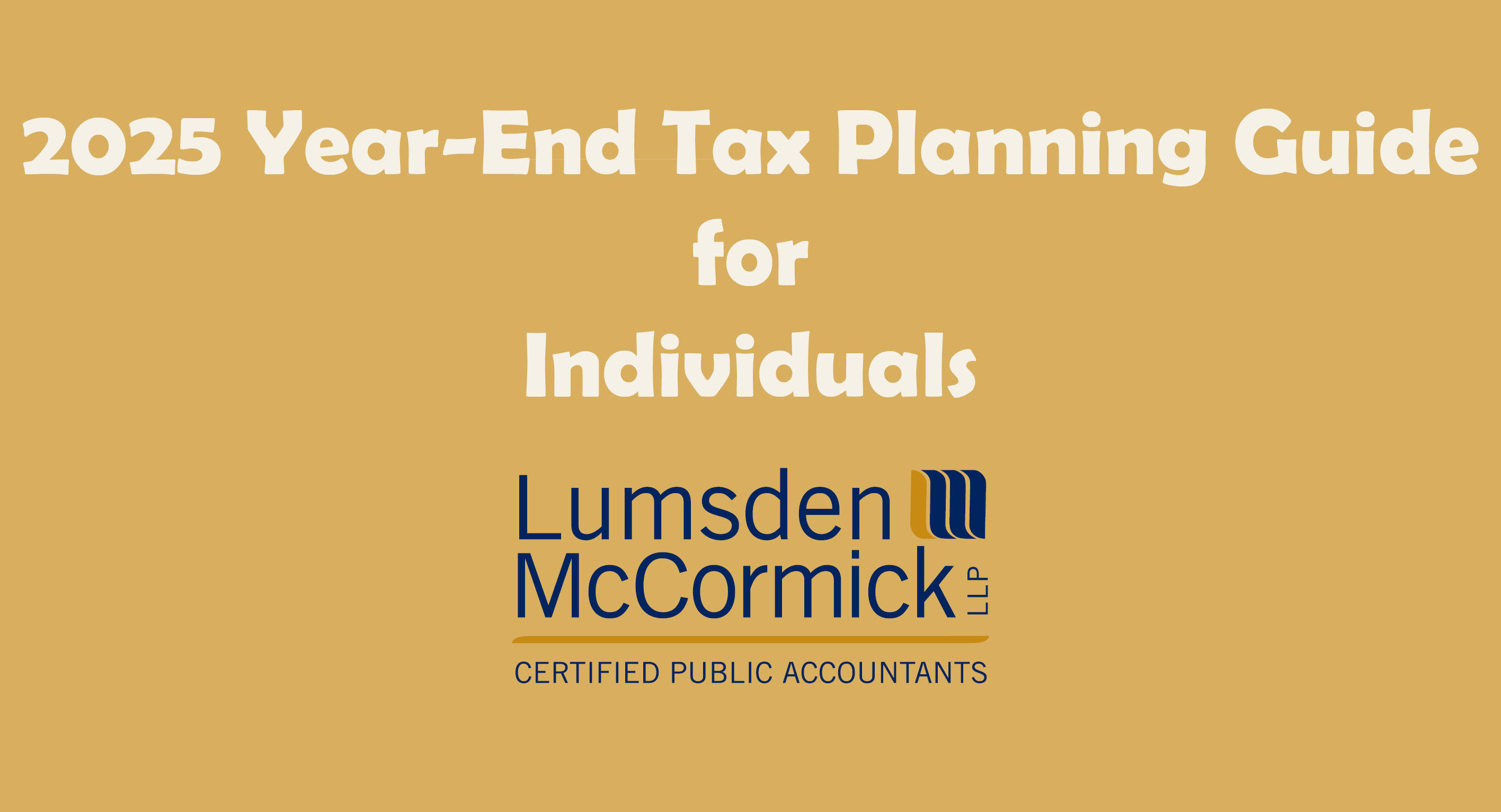Retirement Planning Articles
2025 Year-End Tax Planning Guide for Individuals
Posted by Cheryl A. Jankowski on December 08, 2025
As year-end approaches, individuals must prepare to review their 2025 tax situation. Our annual year-end guide highlights key opportunities and important updates that can lower tax liability and strengthen long-term financial planning.
Maximizing Retirement Benefits with SEP and SIMPLE Plans
Posted by Austin Robare on April 21, 2025
SEP and SIMPLE plans are retirement options designed for small businesses to simplify administration and reduce financial burdens. SEP plans allow employers to make discretionary contributions to employees' SEP-IRAs, while SIMPLE plans involve employer matching contributions based on employee salary reductions. Both plans offer unique advantages, including tax benefits and minimal IRS filing requirements.
2025 Retirement Plan Cost of Living Adjustments
Posted by Robert Ingrasci on November 12, 2024
Lumsden McCormick presents a highlight summary of the significant cost-of-living adjustments (COLA) effective for 2025.
How Self-Employed Individuals Can Build a Robust Retirement Nest Egg with a Solo 401(k)
Posted by Alexander Intihar on October 28, 2024
A solo 401(k) is an excellent retirement savings option for self-employed individuals and small business owners with no employees, offering high contribution limits and tax savings. With flexible contributions and loan options, this plan allows for substantial, deductible retirement investments. However, solo 401(k)s require more administrative work, making them best suited for business owners with significant income and a commitment to maximizing retirement savings.
Employers: Social Security Wage Base Increase in 2025
Posted by on October 21, 2024
In 2025, the Social Security wage base will rise to $176,100, increasing payroll tax obligations for employers with high earners. Employers and self-employed individuals will continue to pay FICA taxes at the same rates, with Social Security tax capped at the new wage base and no cap for Medicare. Businesses should plan for these changes and consult for compliance guidance.
The Estate Planning Potential of Self-Directed IRAs
Posted by Robert Ingrasci on July 04, 2024
Self-directed IRAs can enhance traditional and Roth IRAs' benefits by allowing investments in alternative assets, potentially offering higher returns. However, they come with significant risks and tax implications that require careful management. Individuals considering self-directed IRAs should evaluate these factors to optimize their estate planning strategies.







